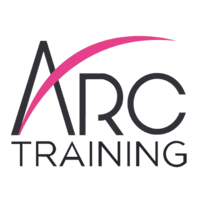
This role has a moderate level of AI exposure. AI can enhance efficiency for some tasks, but this job still relies on human skills and decision-making.
Explore all careersResidential Care Workers support children and adults in various facilities, providing personal services and maintaining close relationships with clients and their families.
Get qualified to work as a Residential Care Worker with a course recognised across Australia. Speak to a training provider to learn more.














































In Australia, a full time Residential Care Worker generally earns $1,200 per week ($62,400 annual salary) before tax. This is a median figure for full-time employees and should be considered a guide only. As you gain more experience can you expect a higher salary than people who are new to the industry.
 Courses.com.au Team
Courses.com.au Team
Opportunities for Residential Care Workers in Australia are expected to grow very strongly over the next 5 years as more than 179,000 new jobs open up around the country. Residential Care Workers are employed by adult care centres, nursing homes, aged care facilities, group homes, and rehabilitation units.
Source: Australian Government Labour Market Insights
 Courses.com.au Team
Courses.com.au Team
Get started as a Residential Care Worker with a Certificate III in Individual Support, and if you are working with the elderly or disabled you might also consider additional VET qualifications in those areas — try the Certificate IV in Disability or the Certificate IV in Ageing Support. They take about a year to complete. You will also need a current first aid and CPR certificate, and you might also require an up-to-date influenza vaccination and a police check.
 Courses.com.au Team
Courses.com.au Team
Browse occupations related to Residential Care Worker



Finding the right path to becoming a Residential Care Worker in Tasmania can be made easier with the variety of professional training options available. At Courses.com.au, we present a comprehensive list of Residential Care Worker courses in Tasmania that cater to both beginners and experienced learners. If you are new to the field, consider taking popular beginner courses such as the Certificate III in Individual Support (Disability) or the Certificate III in Individual Support (Ageing). These courses help you establish a strong foundation in individual support skills that are crucial for a successful career in residential care.
For those with prior experience or qualifications, advanced courses like the Certificate IV in Disability Support or the Certificate IV In Ageing Support can enhance your expertise and open new career opportunities. These advanced courses focus on equipping learners with the necessary knowledge and skills to excel in specialized areas of residential care work.
Several reputable training providers operate in Tasmania, offering these invaluable courses. For instance, Frontier Education provides high-quality training related to the Certificate III in Individual Support (Ageing and Disability). Other noteworthy training providers include AVTA and Work & Training, both of which are committed to delivering excellent training programs designed to meet industry needs.
Community Services courses encompass a broad range of essential topics, with special focus areas such as Aged Care, Disability, and Child Welfare, Youth and Family Intervention. Each of these fields is critical to the role of a Residential Care Worker and highlights the diverse skills you can develop through our listed courses.
With 20 distinct Residential Care Worker courses available in Tasmania, you're sure to find a program that suits your needs and experience level. Embarking on this educational journey can lead to a fulfilling career in support services, making a significant difference in the lives of individuals in need. Dive into the world of residential care and explore the available options today at Courses.com.au.